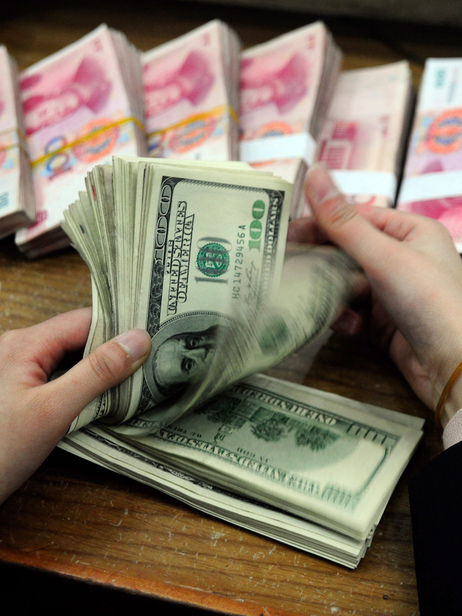The National Bank of Egypt (NBE) and Banque Misr will put forward savings certificates in dollars to attract the savings of Egyptians working abroad within days.
The Central Bank of Egypt (CBE) is reviewing three scenarios for the offering with both the government and banks, a senior banking source told Daily News Egypt in a special statement.
The first scenario is to issue certificates in US dollar for a term of one, three, or five years with dollar yields. The second scenario would be to put forward the dollar certificates for the same terms but with yields in Egyptian pound.
As for the third scenario, it will put forward certificates in Egyptian pounds for those who give up the dollar at banks for attractive yield that is expected to range between 13.5% and 14%. This rate exceeds that of excellence and platinum certificates offered by NBE and Banque Misr for about 1% to 1.5%.
The state largely depends on remittances from Egyptians working abroad for bridging the broadening deficits in foreign exchange, especially under such large demand for the dollar. This high demand led to dollar price flaring up the price on the informal market to exceed EGP 9 for the first time.
The estimated size of remittances by Egyptians working abroad is about $19bn a year, according to earlier statements by Governor of CBE Tarek Amer.
The final details on putting forward the certificates are currently being revised to avoid failure, as has happened with the Egyptian dollar certificate put forward by NBE in May 2012, the source said.
NBE has put forward that certificate on behalf of the government to attract the savings of Egyptians working abroad and employ them in the Egyptian market to support the Egyptian economy and finance the development plan, especially with the severe shortage in foreign exchange after the 25 January Revolution in 2011.
That offer witnessed a large demand in the first few months, especially since the interest rate was high compared to the yield of any other investment in dollars, reaching 4%.The third term of the certificate was also suitable for a wide segment of Egyptians working abroad.
Turnout has declined on such a certificate after citizens discovered they may not be borrowed against the certificates, the source said. This lost the certificates one of the most important advantages of savings certificates. This continued until selling the certificate came to a final stop in May 2015.
It is of note that the minimum subscription in the Egyptian dollar certificate was $1,000 and its multiples and this condition was seen by some as another flaw that led to low turnout on the part of some categories of workers abroad who have limited income.
According to the source, the currency in which the yield will be paid is one of the issues not yet resolved; whether it will be in US dollar or in Egyptian pound.




